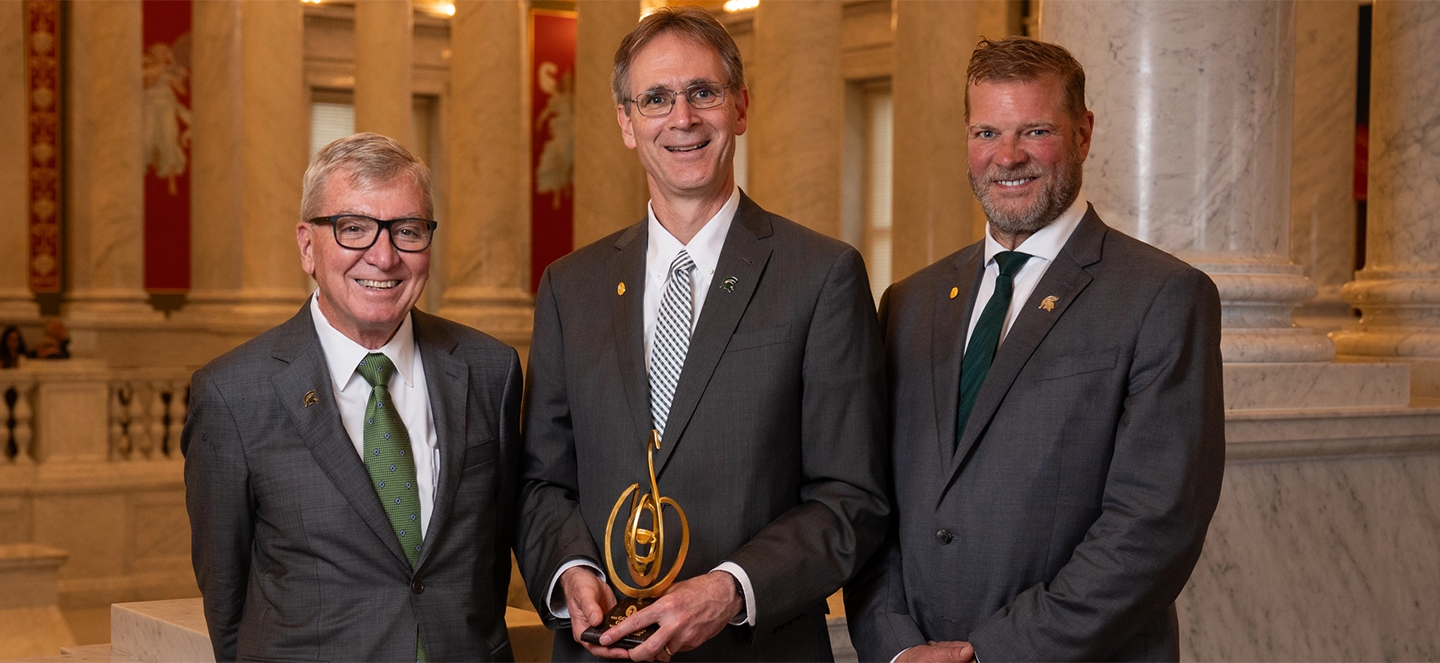
MSU's Federally Funded Cisplatin Cancer Drug Wins National Award
On Sept. 16, Michigan State University received a national honor — the 2025 Golden Goose Award for the scientific success and global impact of cisplatin, the gold standard of cancer-fighting chemotherapy treatments.
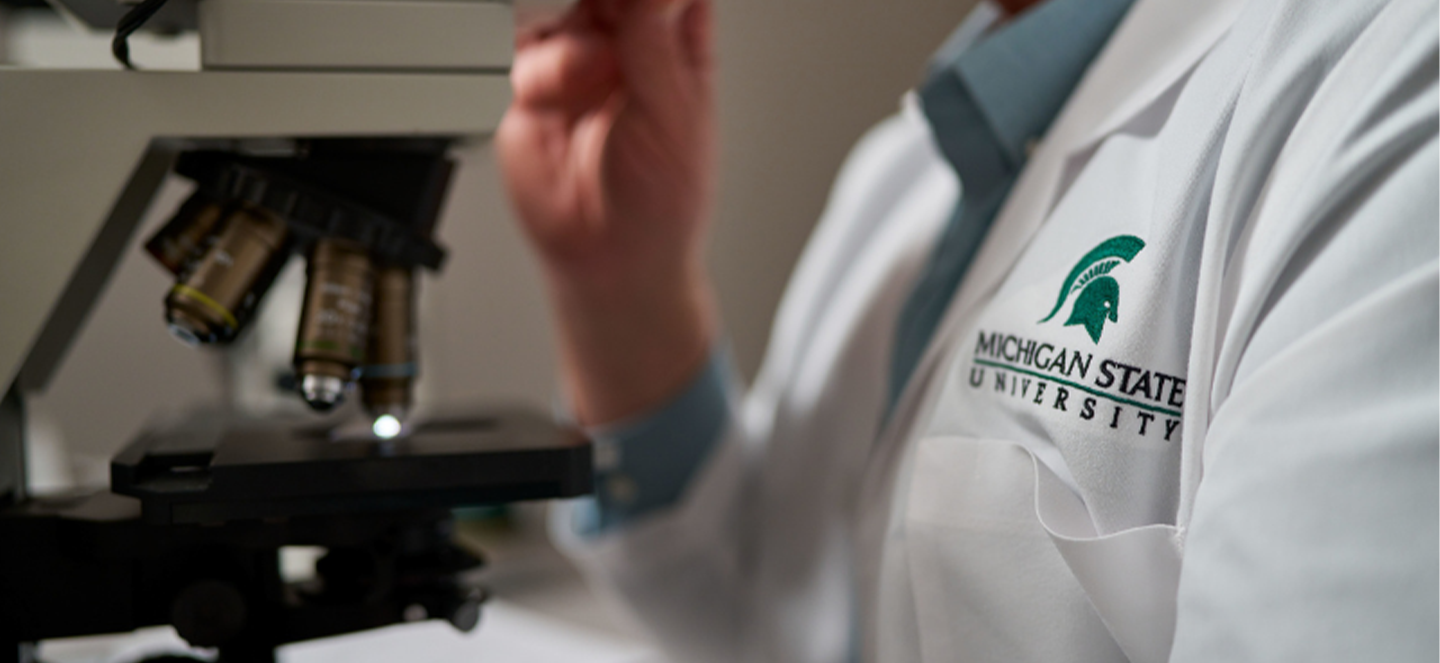
How Cancer Research is Funded and What Happens When It's Cut
Cancer research in the U.S. is backed by a complex system of interdependent funding. Partners include academia, pharmaceutical companies, biotechnology start-ups, federal agencies and private foundations. These groups rely heavily on each other and, when one struggles, the entire system suffers.
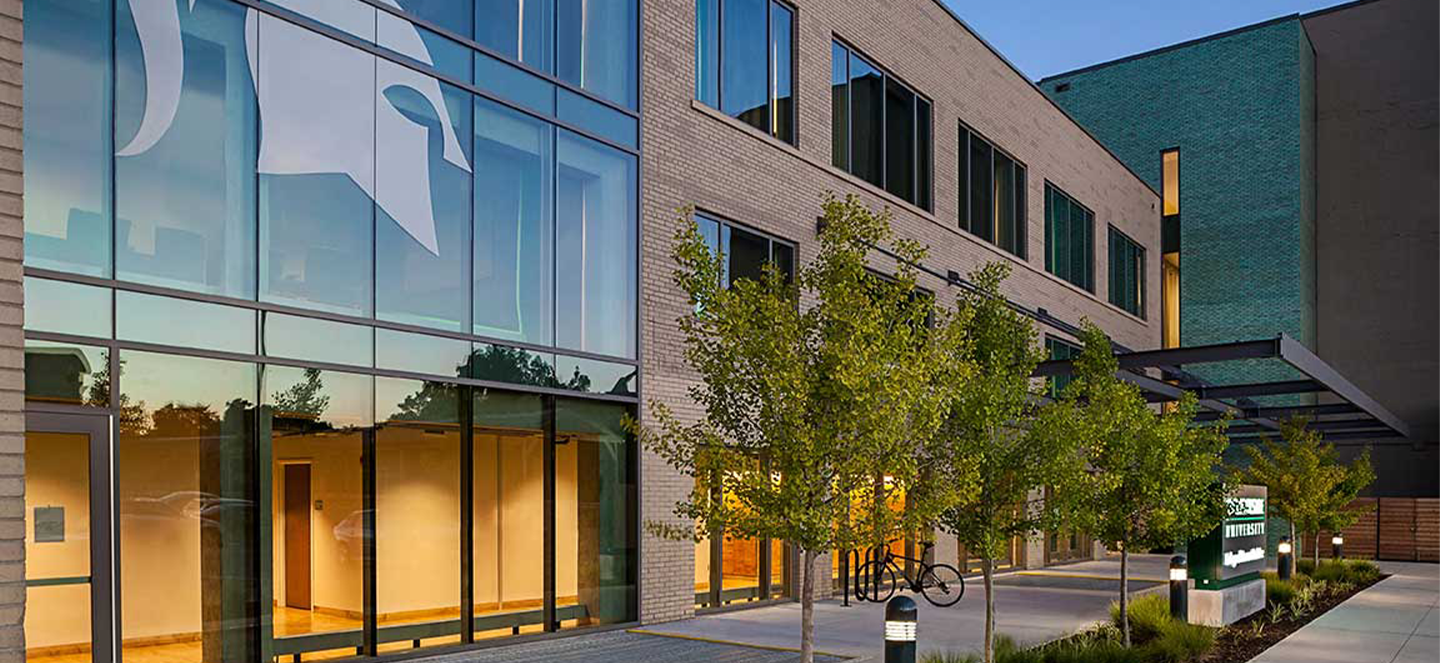
Michigan State University Flint Community Cancer Consortium Launches Cancer Feasibility Study
People in Flint are concerned about elevated cancer rates, particularly multiple myeloma, and possible links to environmental exposures where they live, work, and play. For many in the community, a lack of high-quality reporting on cancer rates in the wake of the Flint water crisis can be highly distressing, worrisome, and frustrating.

American Cancer Society Grant Fuels Colorectal, Breast and Cervical Cancer Research
Four dedicated researchers from Michigan State University have received grants totaling more than $3 million from the American Cancer Society, or ACS, to find new ways to prevent, detect, treat and help patients survive colorectal, breast and cervical cancer.
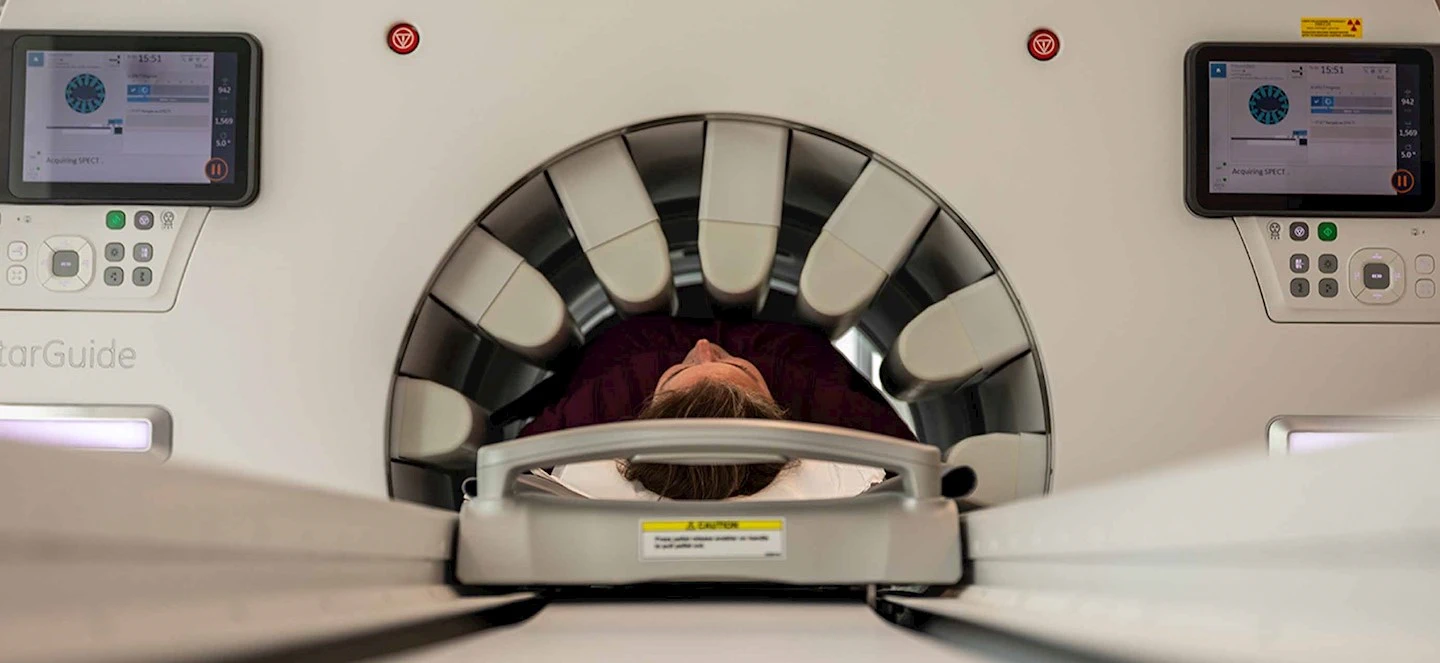
MSU Researchers Fight Cancer for You
More than 250 researchers with Henry Ford Health + Michigan State University Health Sciences receive funding from federal agencies as well as other sources that supports their research focused on better diagnosis and treatment for cancer patients. They bring together diverse expertise across disciplines and, often, one advancement contributes to another.

Henry Ford + MSU Researchers Collaborate to Shift Pancreatic Cancer Outlook From Bleak to Bright
Pancreatic cancer is one of the most aggressive and deadly forms of cancer. The five-year survival rate is just 13%. On average, patients survive for only nine months after diagnosis and roughly 66,000 people are diagnosed in the U.S. each year. Now, researchers from Henry Ford Health and MSU are coming together to share their knowledge and expertise with the aim of changing this somber prognosis.
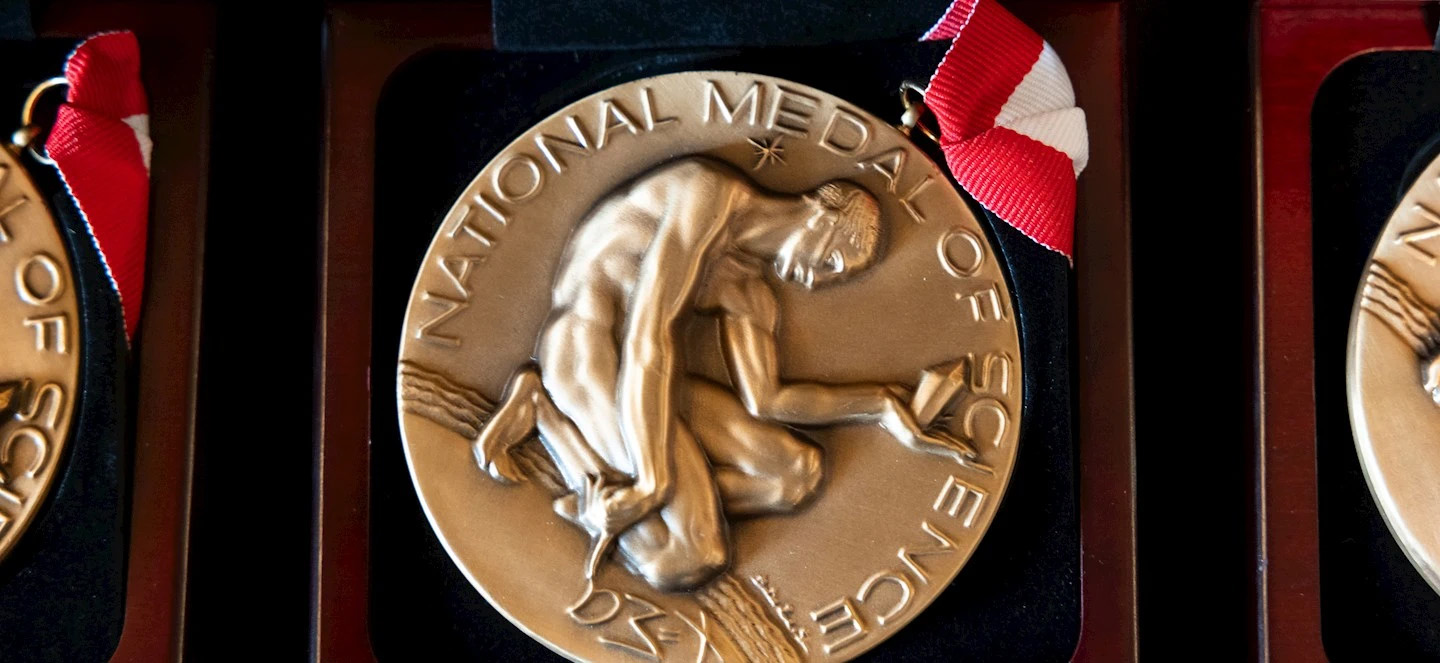
National Medal of Science Awarded to Oncofertility Innovator, MSU Research Foundation Professor Teresa Woodruff
Teresa K. Woodruff joined an elite group of Americans who have received two national medals of honor when President Joe Biden announced the latest recipients of the National Medal of Science on Jan. 3.

Researchers Use Virtual Reality to Modernize Health Care Training
Michigan State University researchers have developed a virtual reality curriculum to prepare health care professionals and students for the complexities of caring for patients with tracheostomies and laryngectomies.
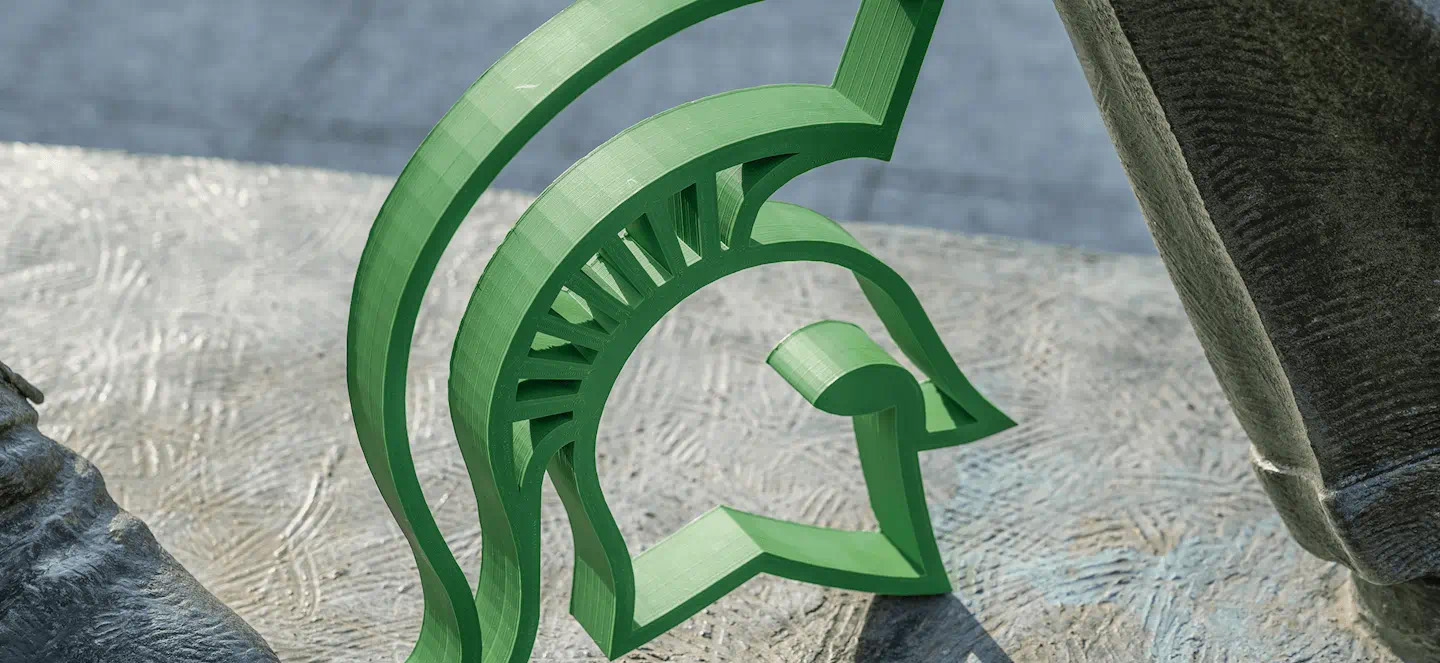
Henry Ford Health, MSU Announce 2024 Cancer Research Award Recipients
Henry Ford Health + Michigan State University Health Sciences has named the award recipients of the 2024 Cancer Seed Funding Program. Building on the success of the 2022 and 2023 cancer research pilot and integration award funding initiatives, this year the program awarded 14 new cancer research awards totaling $700,000.
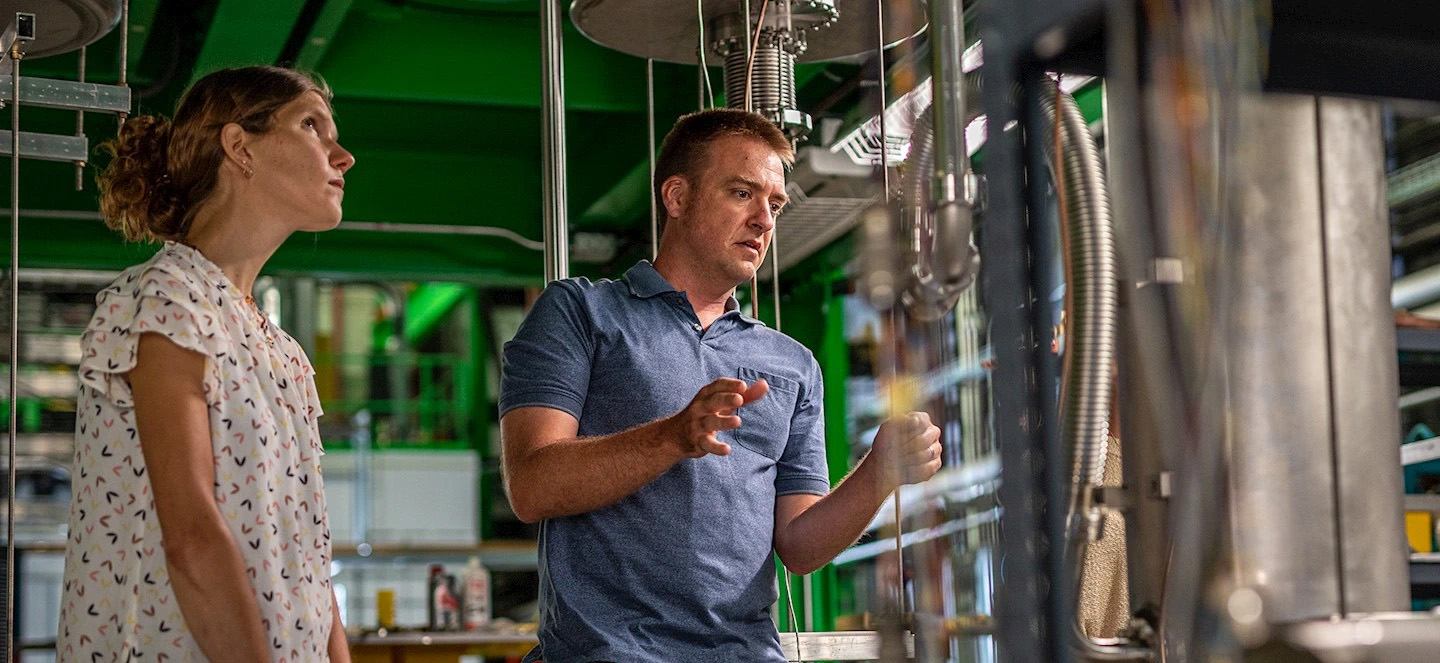
Fighting Prostate Cancer, From Farm to Table, at MSU
With a nod to bringing local, fresh ingredients directly to our dinner plates, Michigan State University researchers will soon be applying their own farm-to-table approach to the fight against prostate cancer. From therapeutic ingredient production to research and testing — it’s all happening at MSU.
The special ingredient in this approach is promethium-149, or 149Pm. This isotope has promising qualities for targeted radiotherapy — a process that delivers radioactive isotopes directly to cancer cells to damage their DNA.
The special ingredient in this approach is promethium-149, or 149Pm. This isotope has promising qualities for targeted radiotherapy — a process that delivers radioactive isotopes directly to cancer cells to damage their DNA.

College of Human Medicine Recruits Leading Cancer Researchers Jeff and Jenny Klomp
On a sunny morning this past June, scientists around the world woke up to news that could fundamentally change the game in cancer research and care. And two of the people behind that breakthrough are now working at Michigan State University.

MSU Researcher Identifies Ways to Reduce Cancer Risk Among LGBTQIA+ People
Socioeconomic status, provider-patient relationships and rural living environments have been found to affect cancer screening behaviors for LBGTQIA+ individuals, according to a recent study from Callie Kluitenberg Harris, a doctoral candidate in the Michigan State University College of Nursing.
“With a better understanding of cancer screening discrepancies among sexual minorities, the probability of finding a cancer early is greatly enhanced and ultimately reduces the risk of death from a late-stage diagnosis,” Harris said.
“With a better understanding of cancer screening discrepancies among sexual minorities, the probability of finding a cancer early is greatly enhanced and ultimately reduces the risk of death from a late-stage diagnosis,” Harris said.
